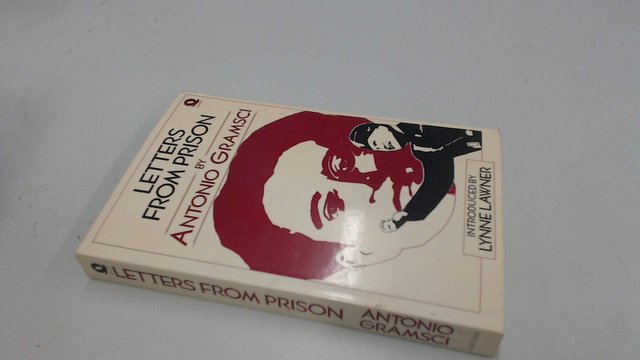How to deal with quarantine: three lessons from Antonio Gramsci

Yesterday was once again a day full of rambling chat conversations, an endless stream of useless breaking news, followed by a hint of panic at the idea of an indefinite period without hugging. But then there is also 'Letters from prison' by Antonio Gramsci, a man who knew how to cope with heavier forms of quarantine. As a co-founder of the Communist Party in Italy, Gramsci was not the fascists' best friend. After Mussolini's seizure of power, he would never leave prison. Besides being good for putting your own situation into perspective, these letters are also quite a good source of inspiration.
This situation may take a long time. And since I notice that many people are currently going through a similar struggle, I will list the three main lessons that I learn from the letters.
1. Keep in contact
"Write me a lot, because receiving letters is the most joyful experience I can have in these circumstances," Gramsci writes, closing each letter with "tender hugs." Letters were his only way of keeping in touch with the outside world. That has its limitations. "I have the impression," he writes, "that I really speak to you as I write. The only problem is that I'm limited to a monologue if your letters don't come or they don't seem to reply to the conversations I started.”
Today we have so many more options. We are currently physically limited, but people thrive on social interaction. The worst thing you can do to humans is to cut his social bonds. Personally, I don't have the urge to start a hundred and one chat conversations, it's too chaotic. But let's take full advantage of the new technology. It should really be possible to learn to appreciate Skype. I know my mother does when she sees her grandchildren on that small screen. And today I learned that you can even watch movies 'together' via watch2gether.com.
2. Keep making jokes
"A touch of irony, filled up with humor that follows me everywhere, is an endless help," Gramsci writes. Prison life is hard, much harder than being locked up in your own room. And most of his life Gramsci was sick, much sicker than most are now. "Don't worry," writes Gramsci when he is moved to another prison. "This only makes things worse to a certain extent and mainly only causes new irritations and annoyances." At first sight, those letters are rather sad. And perhaps he often was, but humor and irony kept him going in all circumstances.
It other words: It is not because a situation is extremely serious that you cannot laugh with it. And it is not because you can laugh with it that the situation is not extremely serious.
3. Don't panic, organize
a) Initially organize your own life.
Gramsci describes his weekly schedule in detail. He imposes a certain pattern on himself and gets up at fixed hours and goes to sleep at fixed hours. "Doing sports", he continues, "keeps me from reading too much garbage."
With garbage, Gramsci meant the less informative parts of the newspaper. In the current era of live blogs and social media, the abundance of garbage has become an even greater threat. It is certainly not a smart idea to completely unplug yourself and stop following the news, but for your own mental health and emotional well-being, a little exercise instead of endless scrolling and clicking would be a good addition to our current lifestyle.
b) Secondly, organize ourselves as a people
He tries to avoid the garbage, but Gramsci closely follows the political situation in his country and beyond. During his imprisonment, he and the other prisoners also organized a school. In addition, he planned to study and write something that can help humanity move forward.
Of course, I don't mean that everyone needs to start reading and writing. That’s not my point. Shopping for the elderly and sick, putting down work in non-essential sectors or applauding all the people in the care sector can just as well push the world in the right direction forever.
Crisis situations are times when the impossible becomes possible. The world is tilting, it is up to us to get her back on her feet. Man is a social being, so I believe it will be all right. That's not a prediction, that's a promise. Because hope is not something you have. Hope is something you create with your actions. Let's act!

more info about Letters From Prison by Antonio Gramsci, from Goodreads.com:
Antonio Gramsci (1891–1937) was one of the most original political thinkers in Western Marxism and an exceptional intellectual. Arrested and imprisoned by the Italian Fascist regime in 1926, Gramsci died before fully regaining his freedom, yet he wrote extensive letters while incarcerated, rich with insight into the physical and psychological tortures of prison. In meticulous detail, Gramsci records how political prisoners, himself included, contend with the fear of illness and death and the rules and regulations that threaten to efface their individuality. Forming an incomparable link between Gramsci's intellectual passion and his emotional vulnerability, Letters from Prison shows a man reconstructing his life while being separated from it, struggling to recapture the primary relationships that once defined his identity. Frank Rosengarten divides more than four hundred Gramsci letters into two companion volumes, complete with a chronology of the thinker's crucial life experiences, an introduction that sheds light on the main experiences and themes in the letters, biographical notes on his correspondents, and a bibliography of works cited in his letters.
